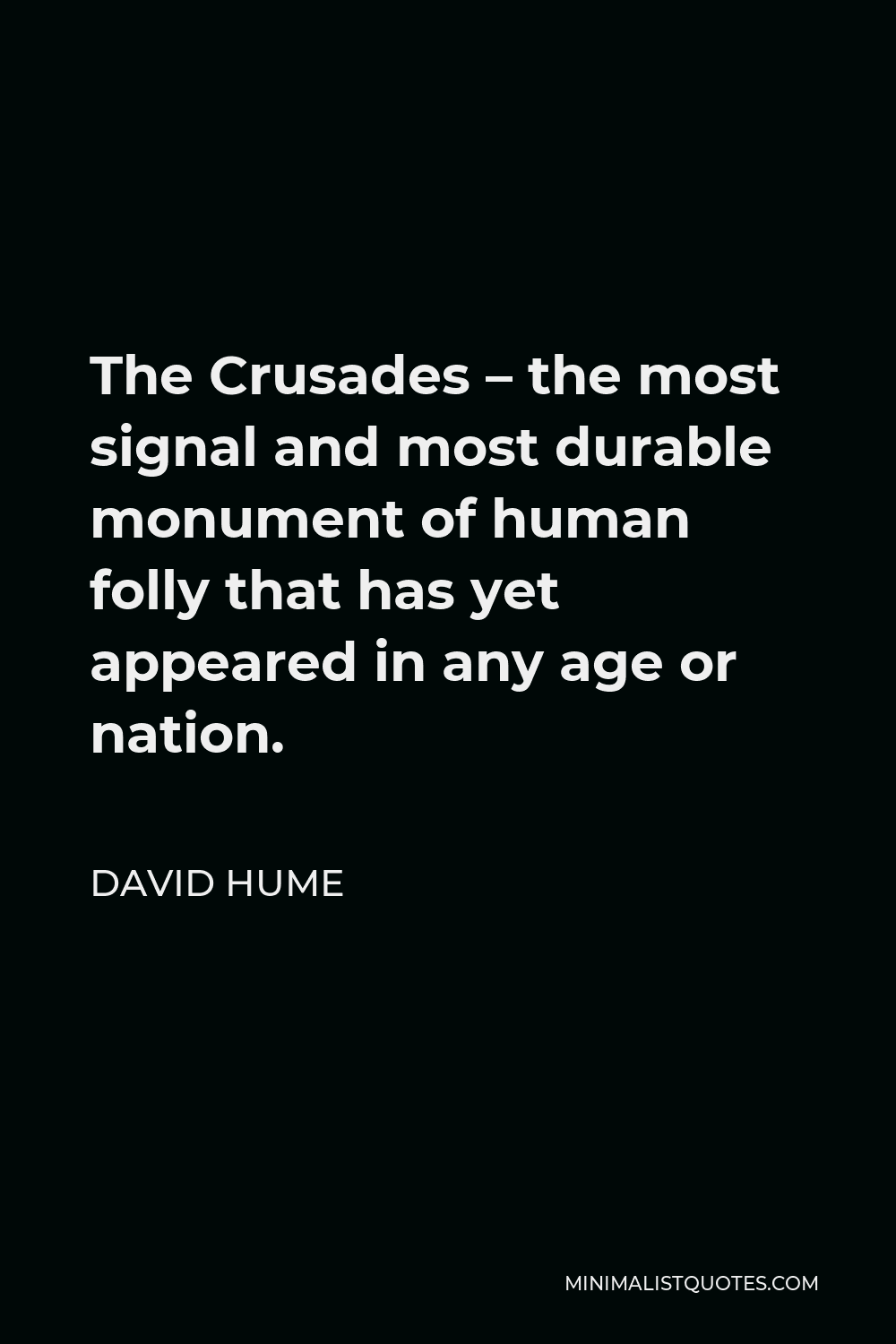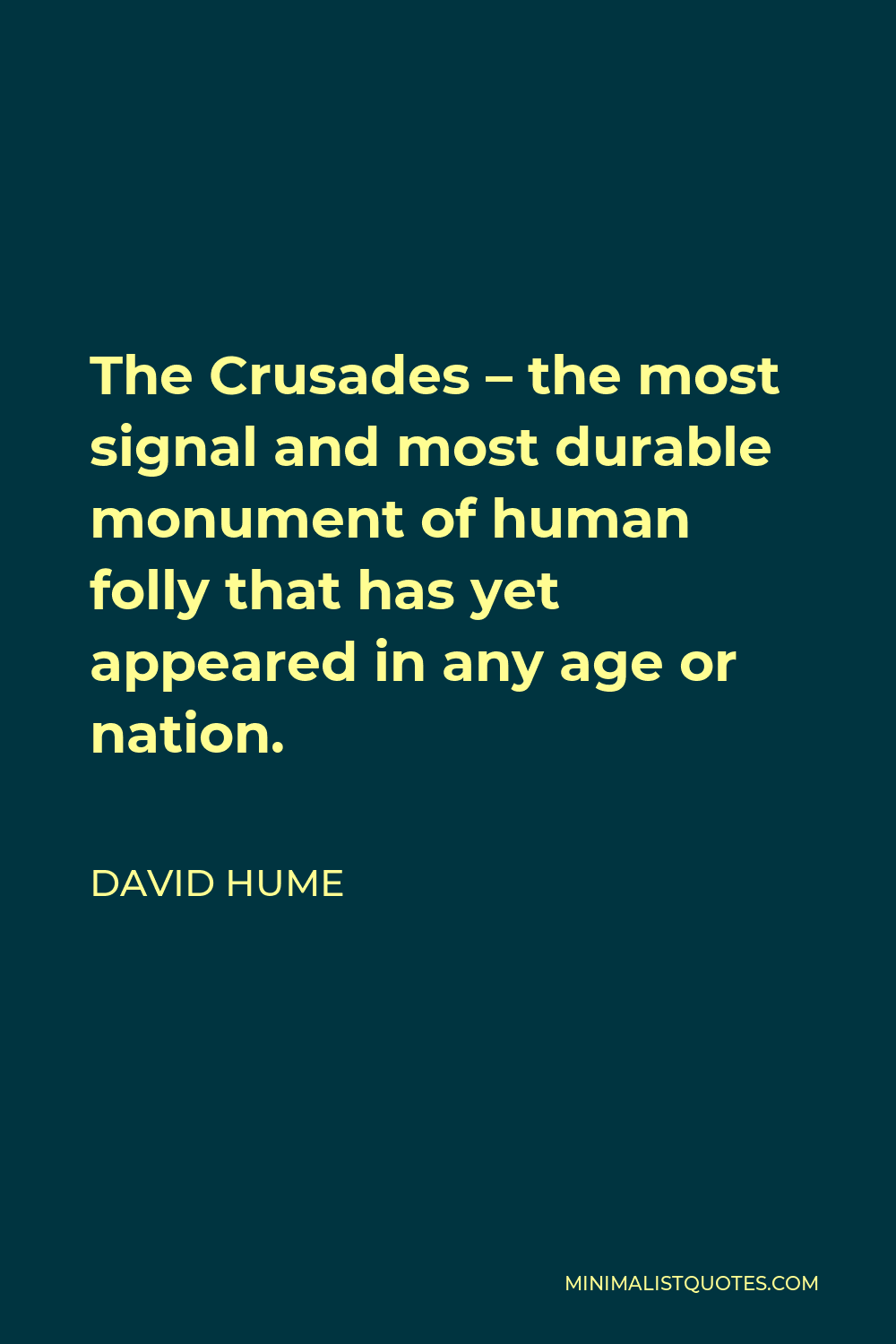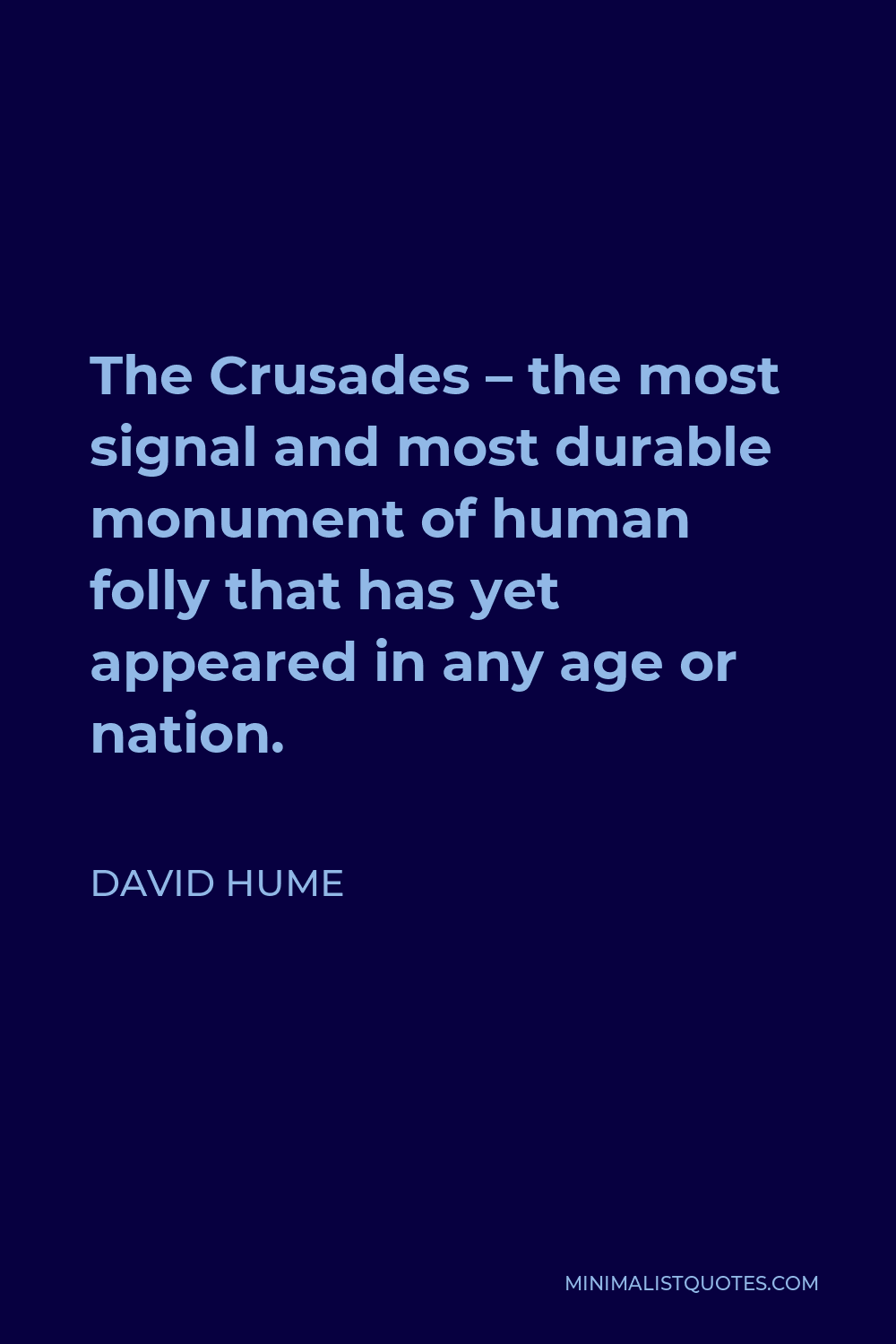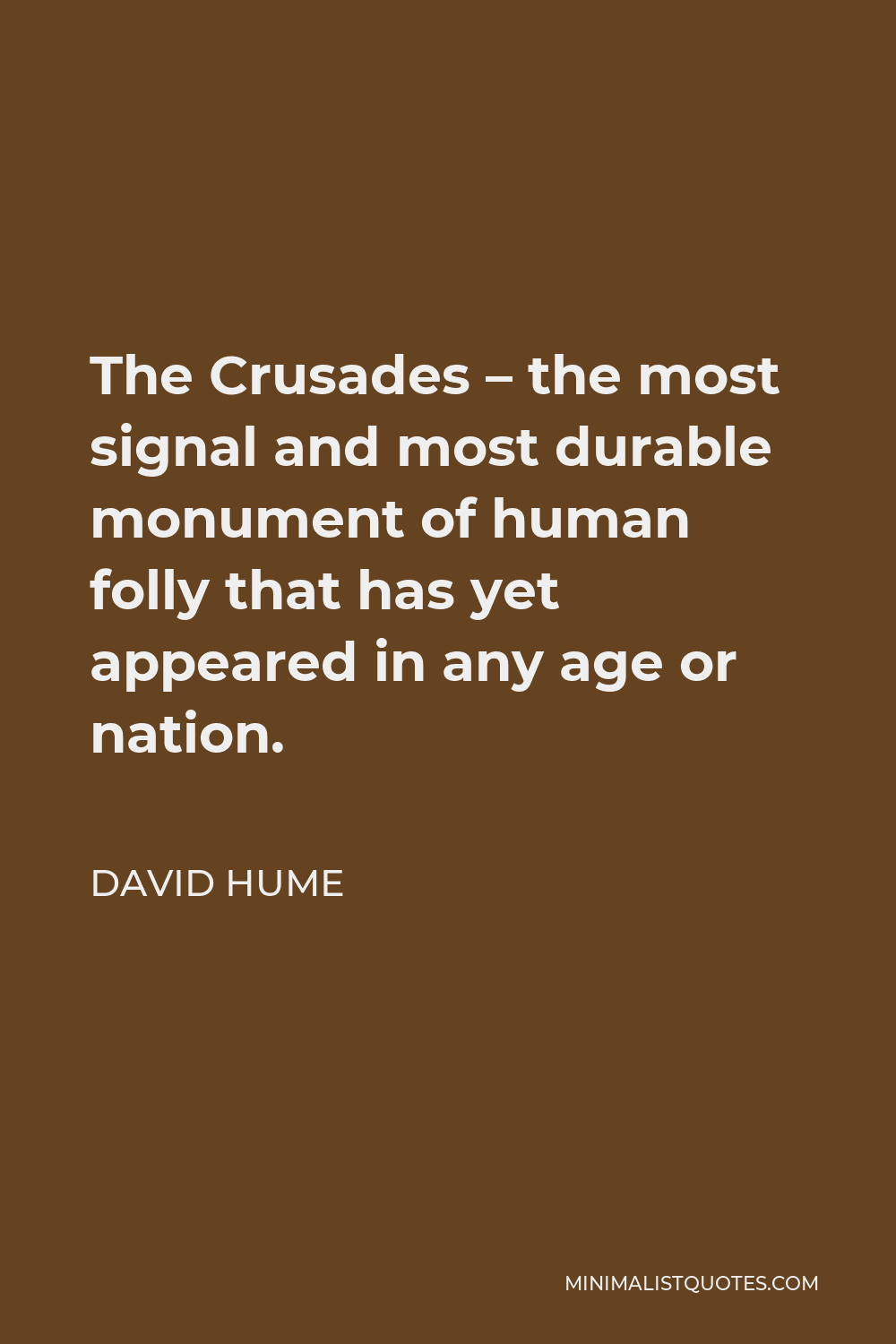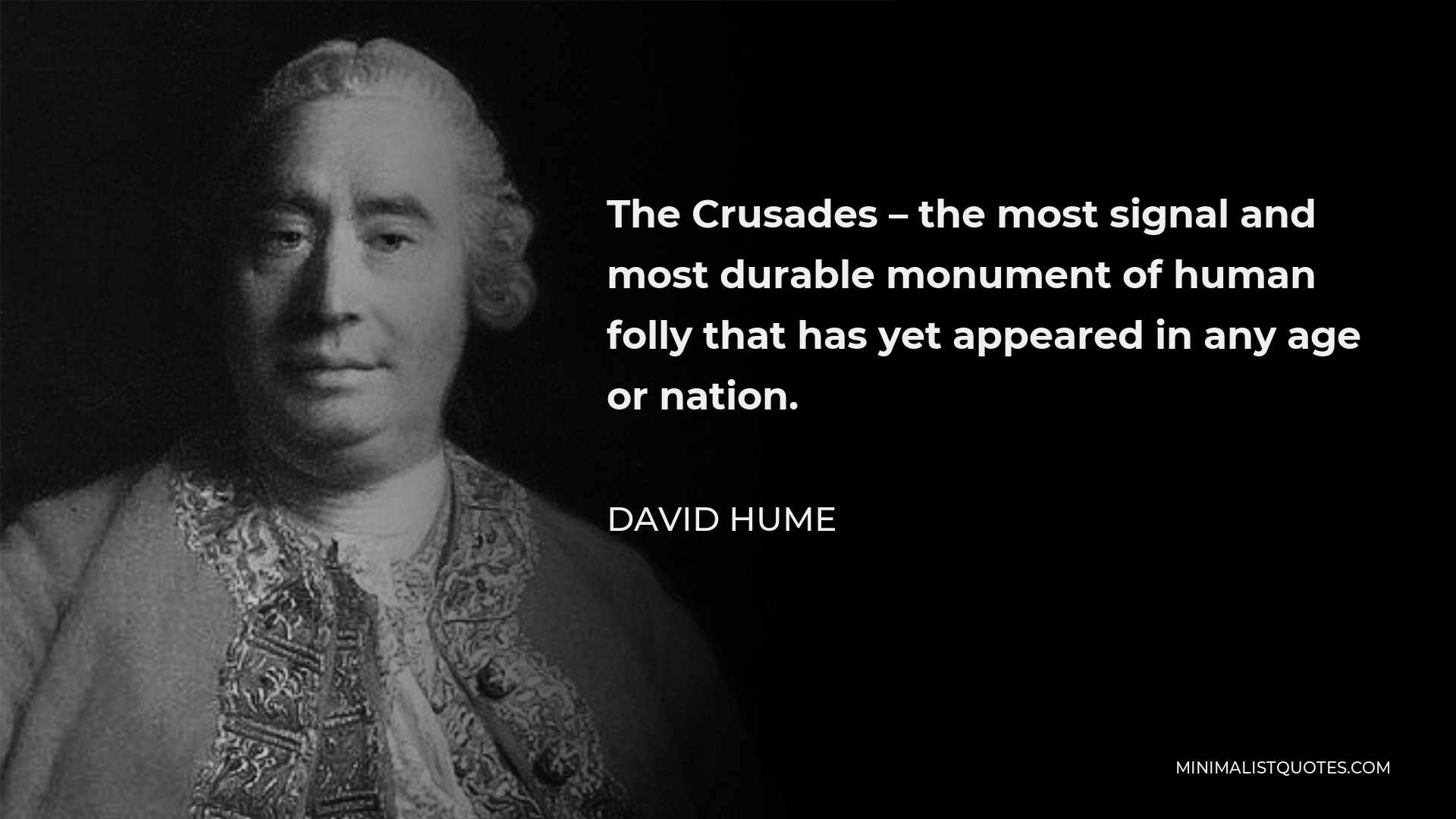In public affairs men are often better pleased that the truth, though known to everybody, should be wrapped up under a decent cover than if it were exposed in open daylight to the eyes of all the world.
DAVID HUMEThe Crusades – the most signal and most durable monument of human folly that has yet appeared in any age or nation.
More David Hume Quotes
-





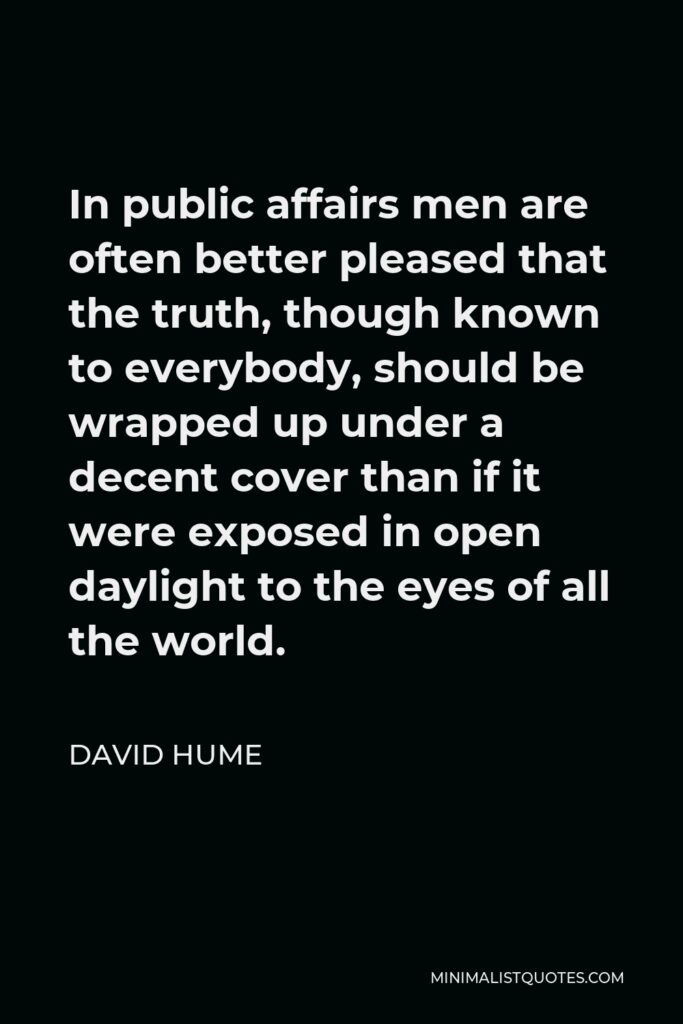

-





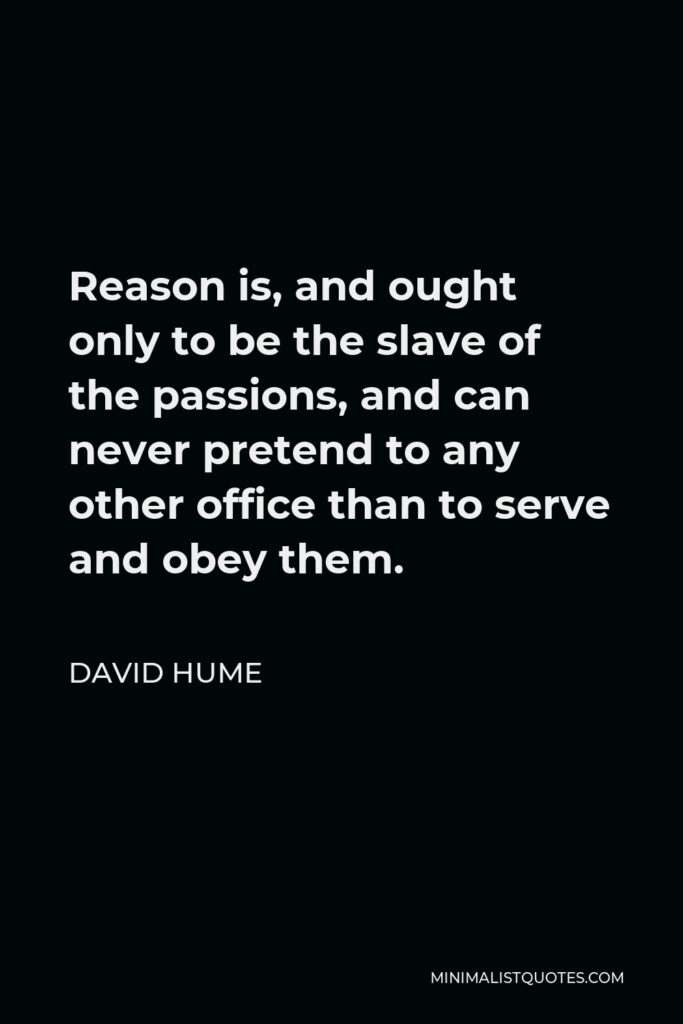

Reason is, and ought only to be the slave of the passions.
DAVID HUME -





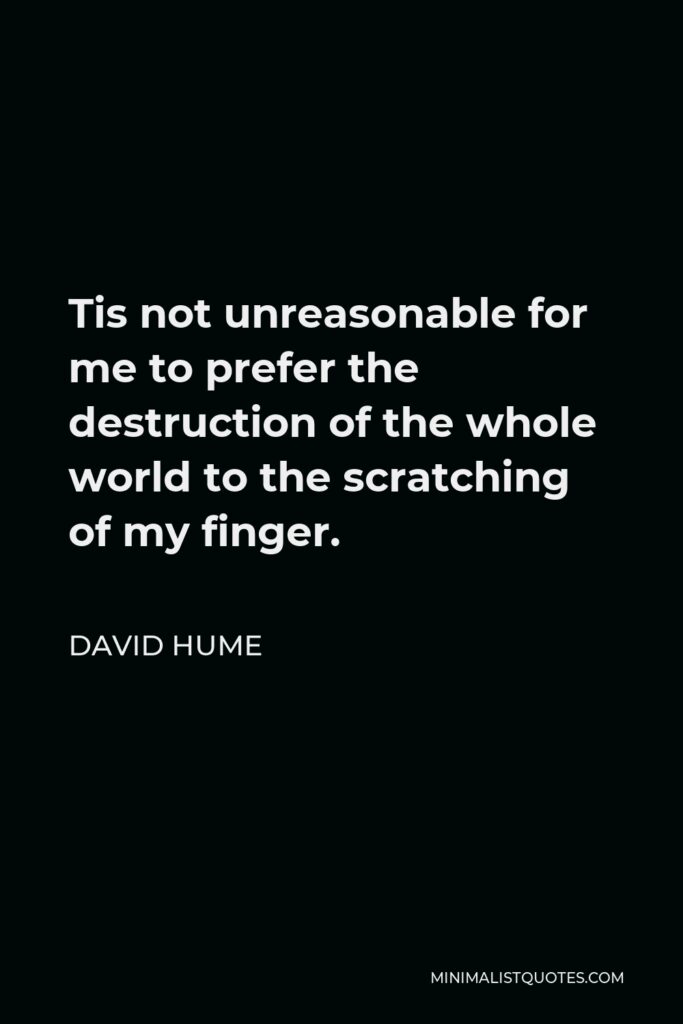

Tis not unreasonable for me to prefer the destruction of the whole world to the scratching of my finger.
DAVID HUME -







When men are most sure and arrogant they are commonly most mistaken, giving views to passion without that proper deliberation which alone can secure them from the grossest absurdities.
DAVID HUME -





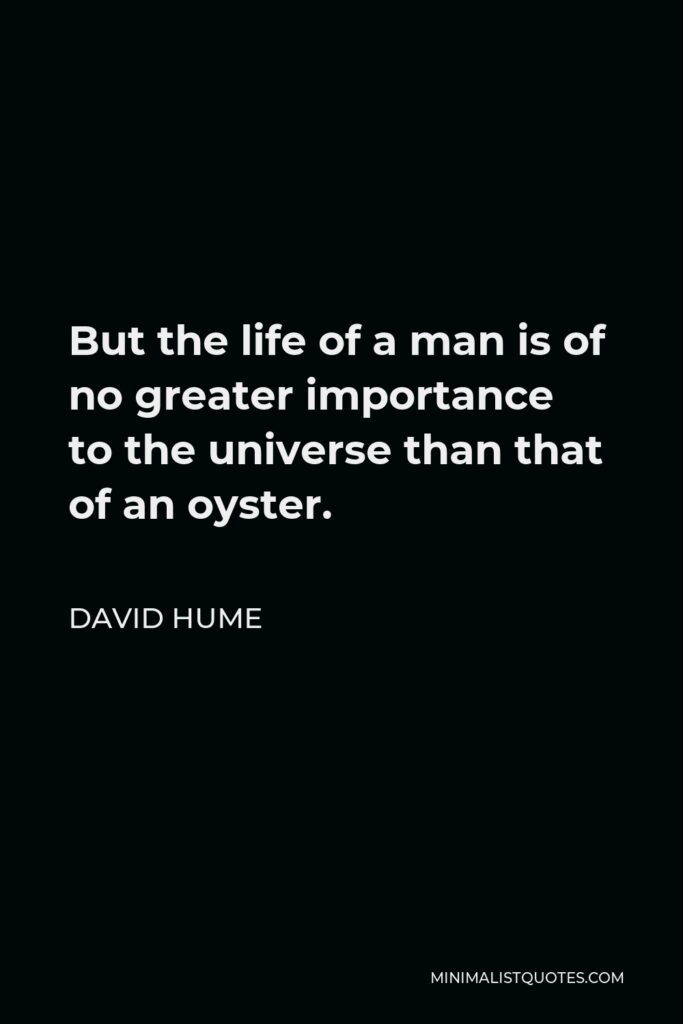

But the life of a man is of no greater importance to the universe than that of an oyster.
DAVID HUME -





![David Hume Quote - The fact that different cultures have different practices no more refutes [moral] objectivism than the fact that water flows in different directions in different places refutes the law of gravity.](https://minimalistquotes.com/wp-content/uploads/2021/05/the-fact-that-different-cultures-have-different-pr-683x1024.jpg)

The fact that different cultures have different practices no more refutes [moral] objectivism than the fact that water flows in different directions in different places refutes the law of gravity.
DAVID HUME -





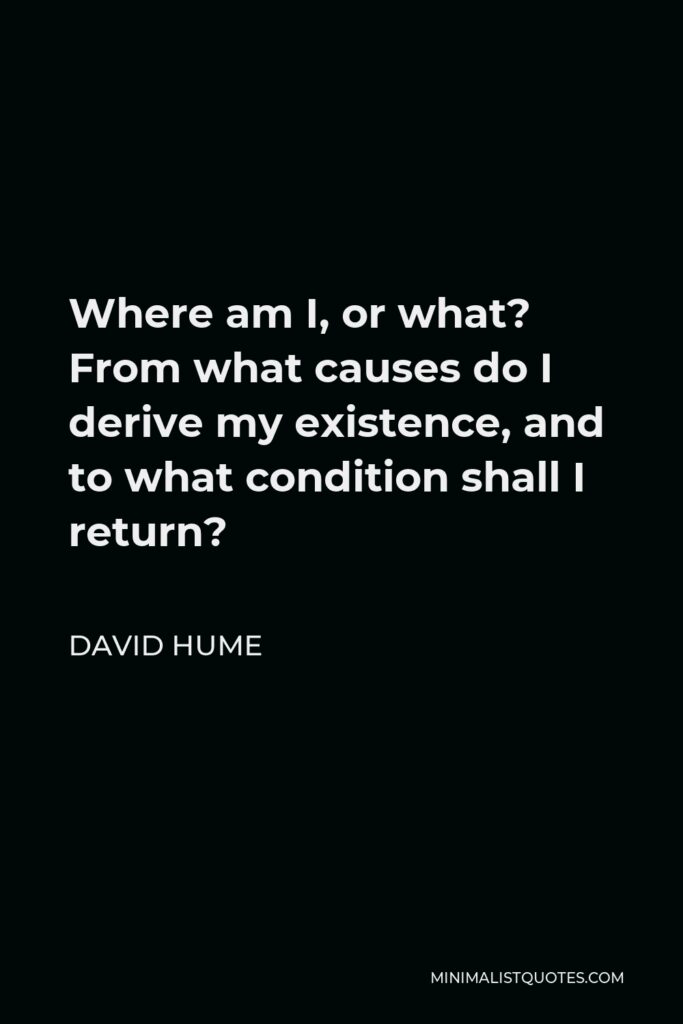

Where am I, or what? From what causes do I derive my existence, and to what condition shall I return?
DAVID HUME -





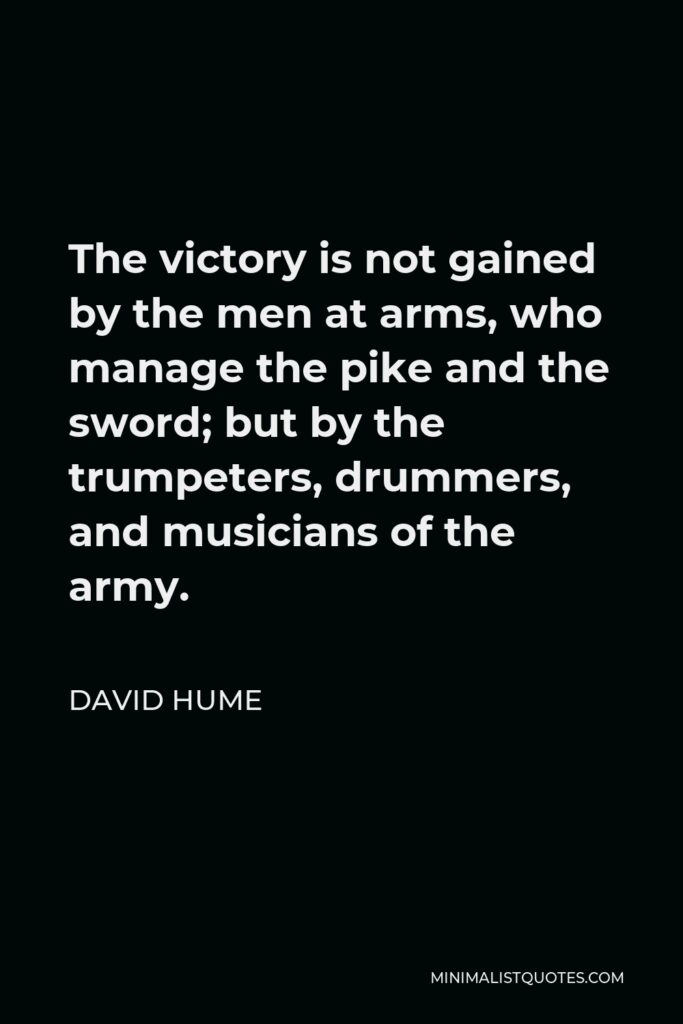

The victory is not gained by the men at arms, who manage the pike and the sword; but by the trumpeters, drummers, and musicians of the army.
DAVID HUME -





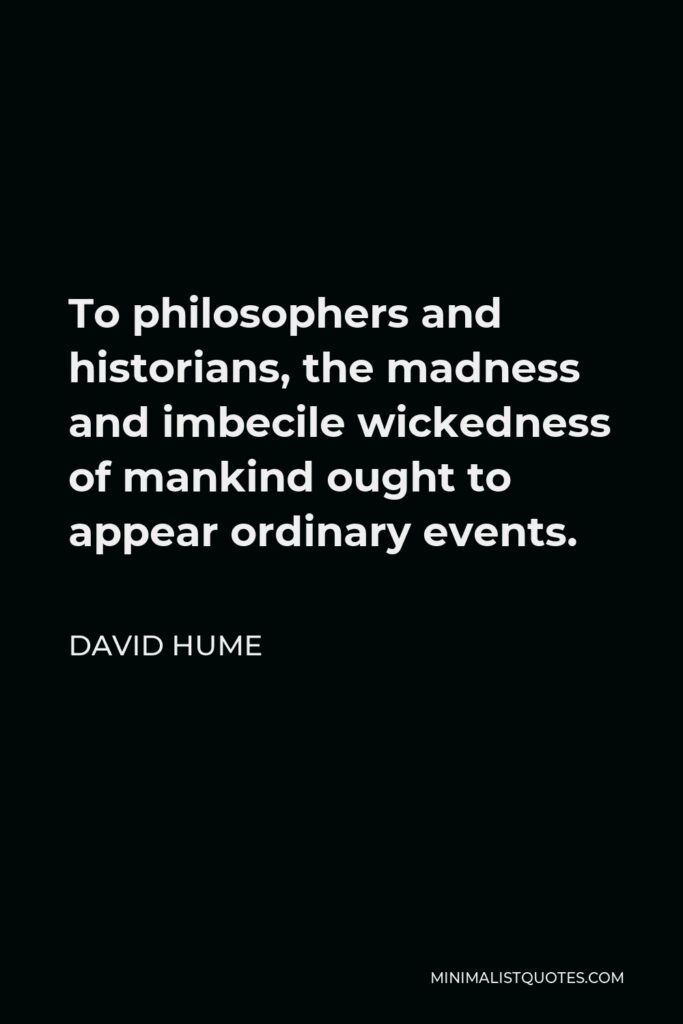

To philosophers and historians, the madness and imbecile wickedness of mankind ought to appear ordinary events.
DAVID HUME -





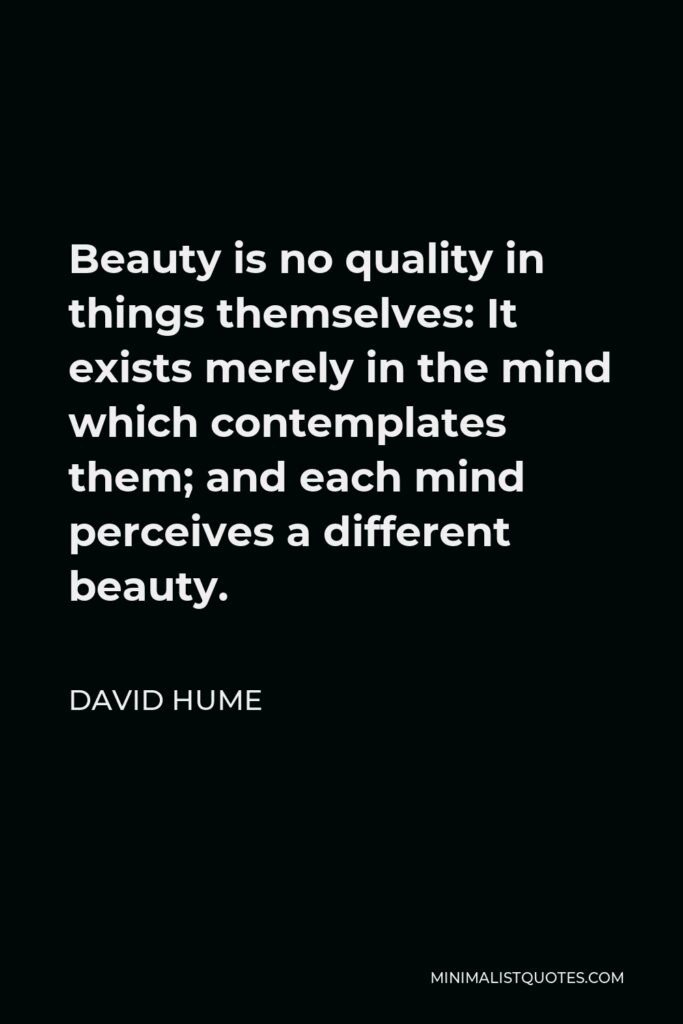

Beauty is no quality in things themselves: It exists merely in the mind which contemplates them; and each mind perceives a different beauty.
DAVID HUME -







To be a philosophical Sceptic is the first and most essential step towards being a sound, believing Christian.
DAVID HUME -





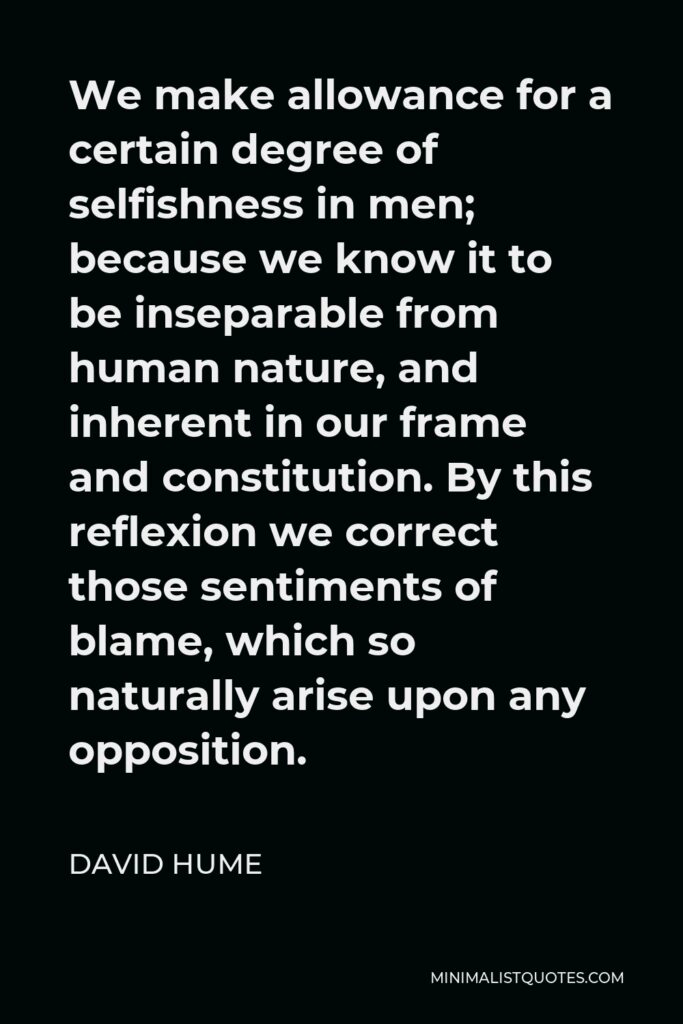

We make allowance for a certain degree of selfishness in men; because we know it to be inseparable from human nature, and inherent in our frame and constitution. By this reflexion we correct those sentiments of blame, which so naturally arise upon any opposition.
DAVID HUME -





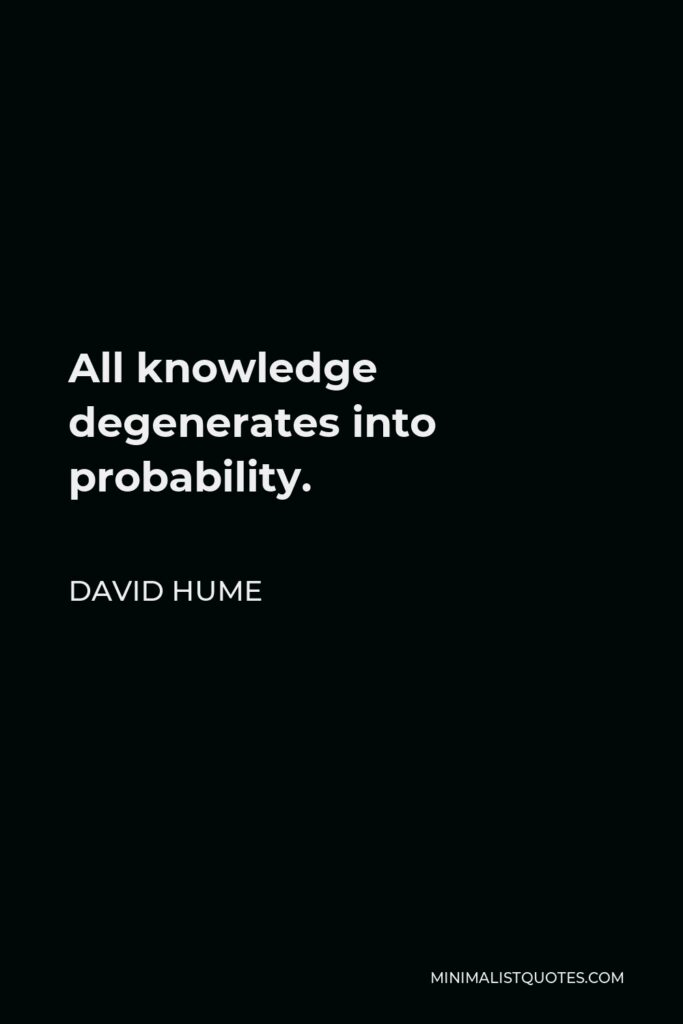

All knowledge degenerates into probability.
DAVID HUME -





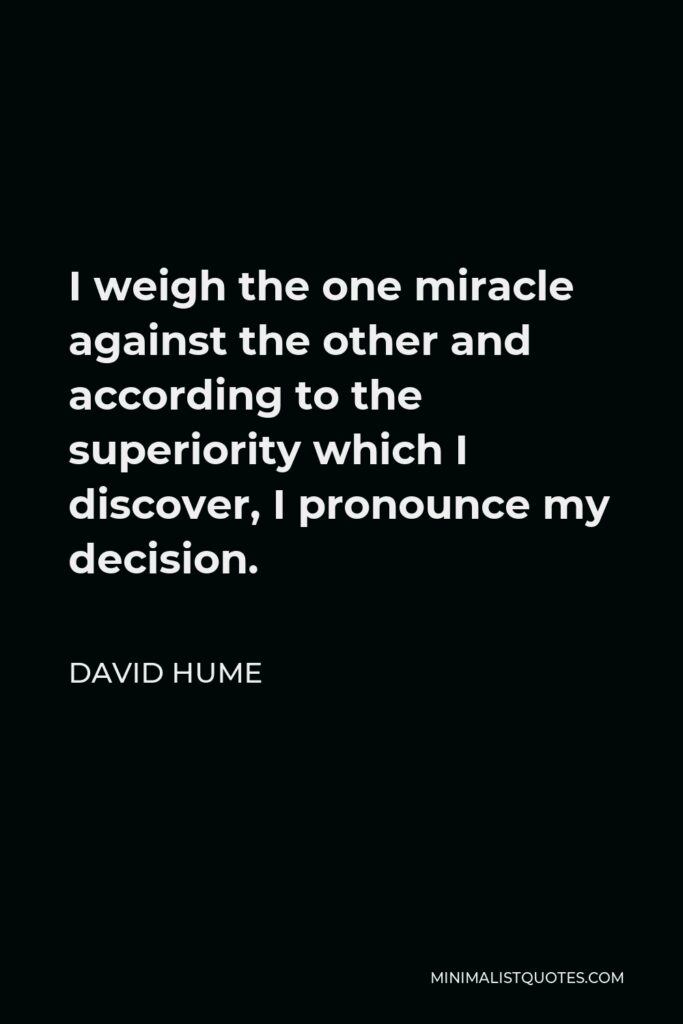

I weigh the one miracle against the other and according to the superiority which I discover, I pronounce my decision.
DAVID HUME -





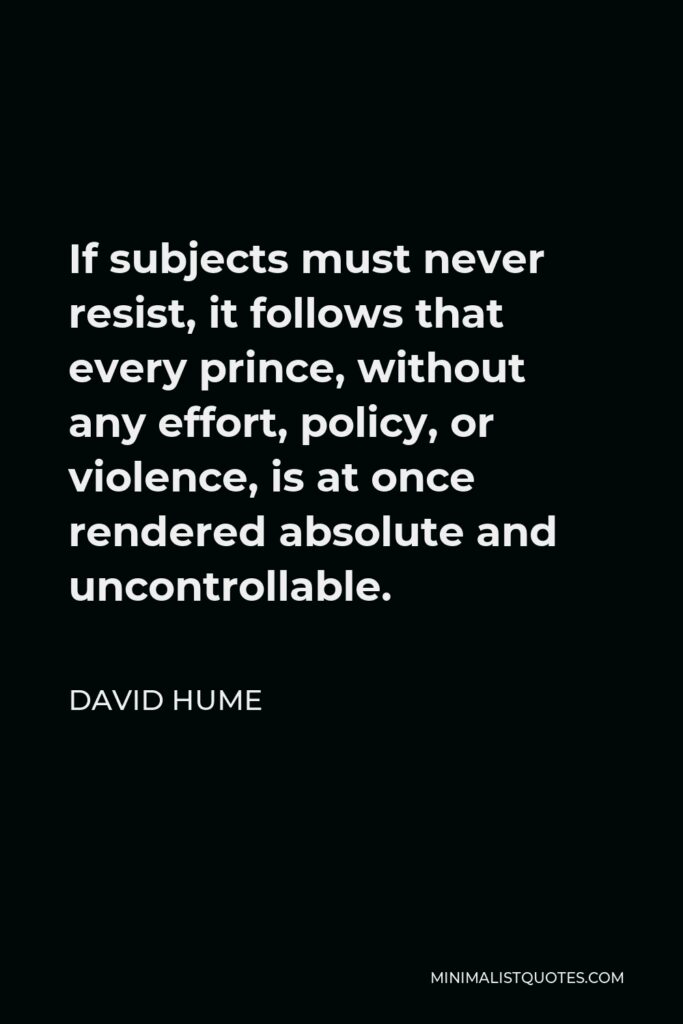

If subjects must never resist, it follows that every prince, without any effort, policy, or violence, is at once rendered absolute and uncontrollable.
DAVID HUME -





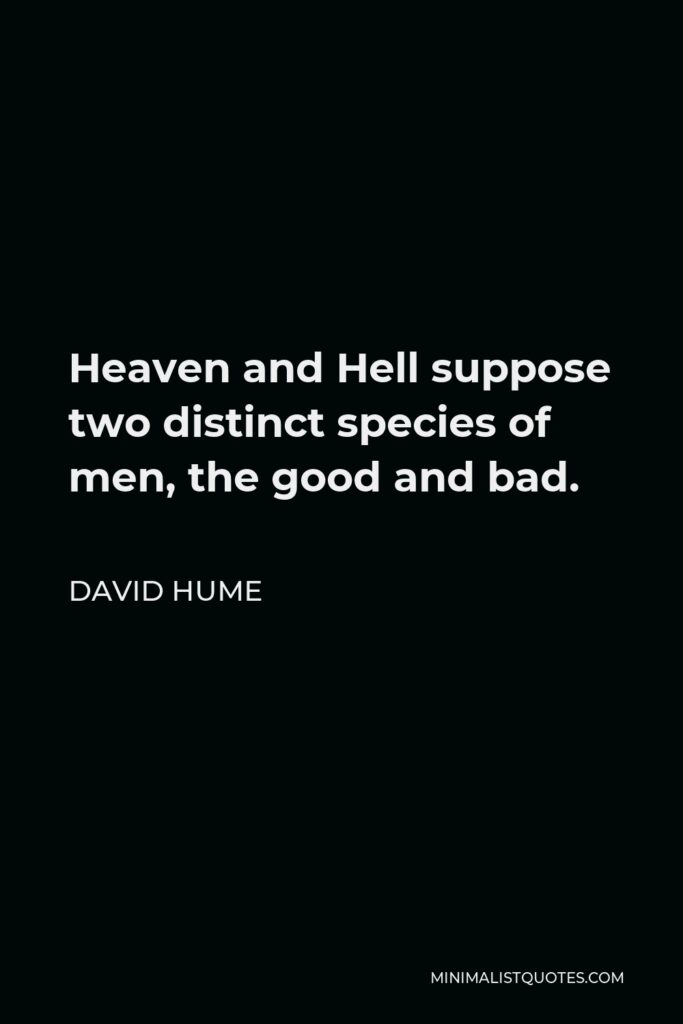

Heaven and Hell suppose two distinct species of men, the good and bad.
DAVID HUME
